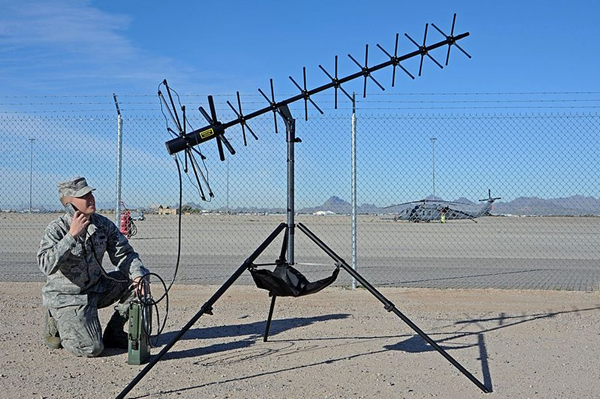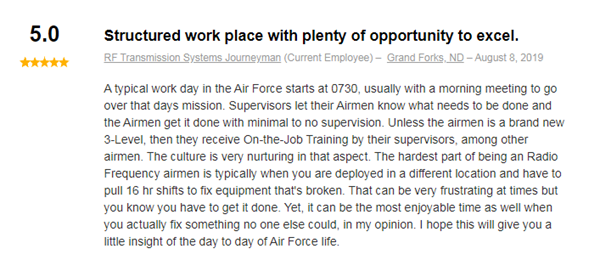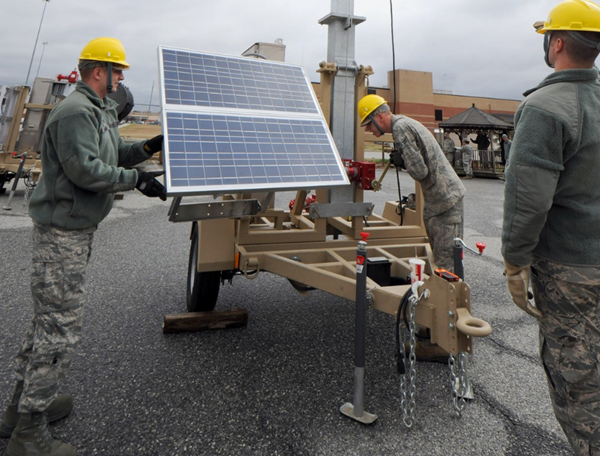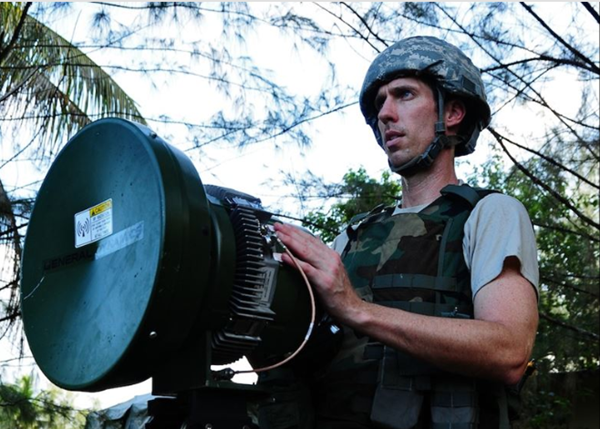Air Force Radio Frequency Transmission Systems (3D1X3) specialist are in charge of establishing and maintaining radio frequency communications.
They are in charge of communication devices such as antenna systems, tuners and transmission lines.
Their job is to ensure communication is possible on-base and around the globe.
Education, Qualifications and Training
This is a position that over 400 students graduate from each year with close to 5,000 currently in the field.
Education
To enter into this position you must have a High School Diploma or GED.
It is also required that you take and pass the Electronics ASVAB test with a score of 70 or better.
Qualifications
This position requires individuals to have normal color vision and be between the ages of 17 and 39.
Individuals will be required to complete a National Agency, Local Agency and Credit Check.
Knowledge of electricity and radio theory is also one of the requirements.
Training
Recruits, like other Air Force positions, will be required to attend Basic Military Training for 8.5 weeks.
After Basic Training, recruits will go to Keesler Air Force Base for 96 days for Technical Training.
Related Article – Air Force Precision Measurement Equipment Laboratory (2P0X1): Career Details
What does a Radio Frequency Transmission Systems Specialist do?

Radio Frequency (RF) Transmission Systems specialist are one of the key players when establishing a bare camp.
In a deployed situation, generally the communications team is one of the first teams to a bare site, after security forces and civil engineers.
The RF Transmission specialist will be required to deploy and activate any mobile and transportable transmission equipment necessary to gain connections.
In this situation, it is up to RF Transmission Systems to establish a communication connection that will allow the connection from the bare base to the main base.
The specialist have to work quickly and establish connection with the correct satellite in orbit.
This is not an easy task and when manpower is down, you can find yourself doing a lot of multi-tasking and quick thinking to establish and maintain connection.
Radio Frequency Transmission Systems are just as important when they are not in deployed situations.
RF Transmission System specialist will work to determine equipment operational status.
The specialist will perform wireless radio and satellite systems and equipment maintenance activities.
Included in the maintenance activities is the task of installing ground radio, satellite and telemetry communications.
Not only is the specialist required to complete the maintenance activities, they are required to keep logs, and discuss projects.
Documenting the maintenance activities is important because it allows for inventory tracking and comparisons.
Documenting the activities also allows the specialist to ensure that all equipment is being fixed according to manufacturing standards.
They can use this data to make recommendations on problems and improving function.
The specialist will evaluate civil engineering project plans and base comprehensive plans.
These individuals learn how to set up, climb and orient an antenna, they learn networking, practice operating on radios, read schematics and learn technical orders.
Airman are responsible for completing line-of-sight communication, satellite communications and high frequency operations.
While they must work quickly, they must also work safely as an error in their set-up or maintenance activity could result in harm to themselves or others.
Related Article – Marine Engineer Equipment Operator (MOS 1345): Career Details
What does an RF Transmission Systems Specialist get Paid?
Air Force RF Transmission Systems Specialist will get paid based on their rank and time of service.
Generally with no military experience individuals will start out at a lower rank and make roughly $1600 a month.
There are potential pay opportunities that could increase that amount.
Find more information on Air Force ranks and pay here.
Benefits
In addition to the pay above, airman receive benefits from the Air Force.
The Air Force benefits include:
- Insurance: Free to low cost medical and dental; paid sick time; low-cost life insurance
- Housing: Allowance based on location, family status and rank
- Food: Allowance for the on-base dining facility plus tax-free department and grocery stores
- Retirement: Paid retirement plan available after 20 years
- Vacation: 30 days paid annually
- Education: Tuition assistant programs and scholarship opportunities
- Recreation: On-base recreational activities, centers and social groups
Find more details about Air Force Benefits here.
Job Reviews
Typically individuals who have previously been in this position find the training to be very enjoyable and the work to be diverse.
Reviews of this position comment on the good and the bad about deployments and the necessity they bring in a deployment situation.
This position requires you to put effort into learning your trade or it could be more difficult in a high-stress situation.
Overall, the majority of individuals recommended the position.
The reviews below discuss what a typical day is like in RF Transmission Systems and what it is like to work in this position for the Air Force.


Civilian Career Opportunities
Working in the Air Force in RF Transmission Systems allows individuals to gain skills in a variety of areas as well as learning discipline under high-pressure situations.
Working with radio frequency systems will open doors in both maintenance and communications fields.
Possible job titles include:
- Radio Operator/Maintainer
- Telecommunications
- Broadcast Technician
- TV & Radio Communication
- RF Transmissions Engineer
- System Operator
Related Article – 10 Best Air Force Jobs For Civilian Life
Summary

Air Force RF Transmission Systems (3D1X3) specialist are key players in installing and maintaining radio frequency communications.
These individuals can be put into high-stress situations and expected to install or fix communication when no one else can.
To enter into this position there are extra security checks, as some of the information that you will be receiving can be confidential.
Reviews of this position include how difficult, but satisfying the position can be.
Related civilian career opportunities include working in radio, communication or electronics.
References
Air Force RF Transmission Systems
Air Force RF Transmission Systems Course
- Ikon Pass Military Discount: Learn How To Save Big - January 31, 2025
- RTIC Military Discount: Find Out How To Save Big on Gear - January 30, 2025
- Traeger Military Discount: Learn How To Save Big on Smokers - January 28, 2025

